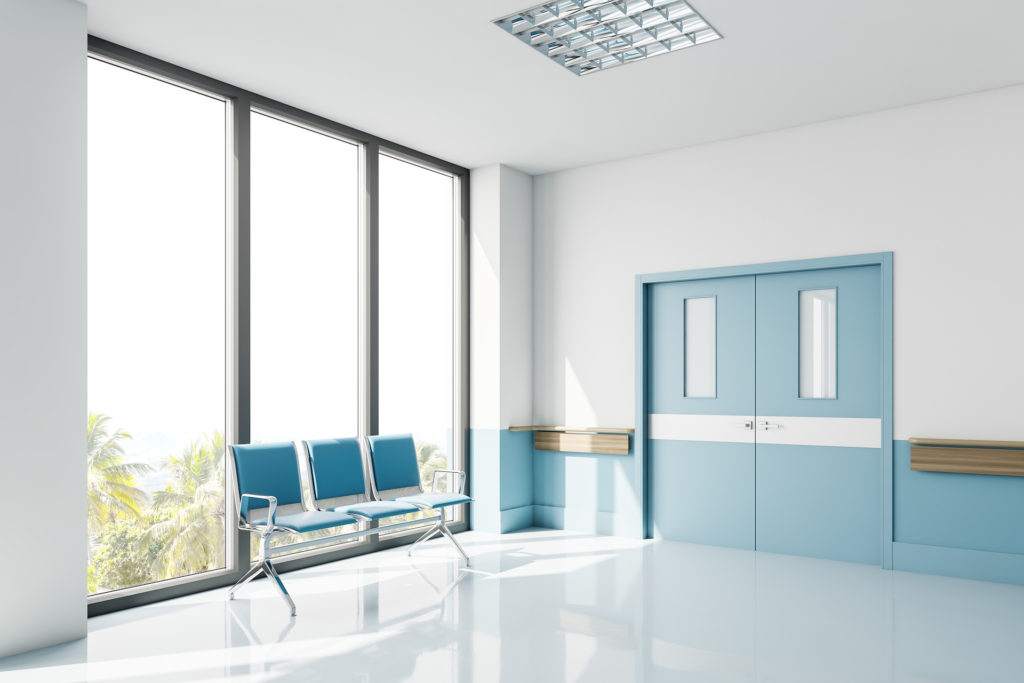As we discussed in our previous article, Types of Properties within the Healthcare Real Estate Sector, medical offices are a unique property type. The rules and regulations surrounding the sector are specific to the medical field. So it’s no surprise that the buildings follow suit—each uniquely fitting a specific set of medical purposes.
There are four main types of medical real estate. But facilitating an industry as complex as the medical field can be challenging. Not every building will be the right property type for a given medical group. This list of pros and cons should help determine which medical property type is the right fit.
Hospital Campuses
Pros: Hospital campuses are great properties for large healthcare systems. They are able to host a variety of physicians, ranging across numerous specialties. They can also accommodate large numbers of patients for various in-patient or out-patient procedures. Because of their size, they also feature on-site restaurants, gift shops, etc. that provide additional amenities for patients, visitors, and staff.
Additionally, a hospital receives better reimbursement rates from Medicare for treatments that qualify for hospital outpatient department (HOPD) services. The services need to be performed within 250 yards of the main hospital building.
Cons: Because of their size, hospital campuses are expensive facilities to run. They require backup generators as well as additional plumbing, cabinetry, interior build-out, etc. A substantial maintenance department is also necessary in order to provide quick assistance to all tenants. And these facilities require large parking areas to accommodate the large number of people who will be on site daily.
Office Buildings
Pros: Office buildings are useful for large health corporations who have a team of office personnel managing the administrative side of a medical group. These spaces are often more affordable than large medical buildings. Medical corporations often lease or own these buildings, and they don’t have to be on a hospital campus.
Cons: The COVID-19 pandemic has caused many companies to either need more space for social distancing or less space to accommodate the work-from-home shift. Office buildings shared by large numbers of people often don’t have negative pressure units, so ventilation is shared by everyone. While building design may adjust in the future, the current design may not facilitate large workforces during health-related issues.
Medical Offices
Pros: Some medical offices allow many patients to see several specialists under the same roof. For example, a podiatrist and orthopedic doctor may have offices within the same building. Tenants in these facilities are typically all within the medical field, and they share janitorial and maintenance services.
Cons: Similar to hospitals (but on a smaller scale), medical offices may have higher costs because of the need for more plumbing, cabinetry, etc. They also require large parking areas for patients and staff. Additionally, if a medical office building is more than 250 yards from the hospital, it cannot receive the HOPD reimbursement rates. There is an “off-campus HOPD” qualification, but the site still needs to be within 35 miles of the main campus.
Retail Medical Offices
Pros: These spaces have been rising in popularity. They can often serve basic medical needs for people in suburban or rural communities. Because of their location within a retail plaza, they usually have built-in foot traffic.
Cons: These medical facilities usually only accommodate patients with acute illnesses. They cannot typically facilitate surgeries or severe medical issues. Depending on the retail location, such as a mall or a plaza, these facilities may not be able to house large medical equipment, such as x-ray machines.
When selecting healthcare real estate, medical groups need to consider the scope of their field and which facility best fits their needs. Many healthcare companies rely on the expertise of a medical real estate advisor to guide them through the process. HBRE’s team of advisors are skilled and qualified to help medical professionals choose the right property type, in the right location, for the best price or rental rate. Reach out to HBRE to get started looking for the right medical property.
If you are interested in learning more about investing in commercial real estate, or if you have questions about buying, selling, or leasing a commercial property, please contact an HBRE advisor. Our team of experienced CRE professionals have the skills and insight to assist with all property transactions. To reach out to us directly, email [email protected] or call 615-564-4133.




